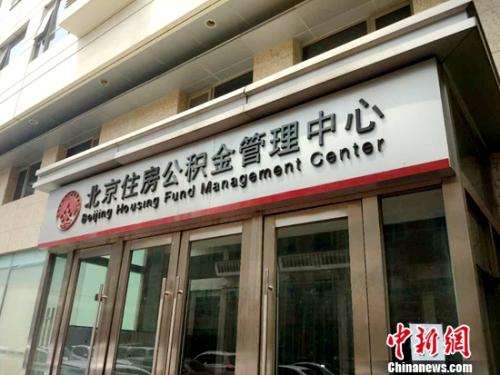Beijing, January 4 (Reporter Li Jinlei) In 2018, the work of benefiting people’s livelihood will continue to advance. Among them, five insurances and one gold, which are closely related to ordinary people, will usher in at least five major changes, which will have a beneficial impact on your income and life.

Change 1: the first step of the national overall planning of endowment insurance
The National Conference on Human Resources and Social Security held recently proposed that in 2018, the universal enrollment plan should be fully implemented. Implement the central adjustment system for basic old-age insurance funds.
The central adjustment system of the basic old-age insurance fund is the first step taken by the national overall planning of old-age insurance. According to the Ministry of Human Resources and Social Security, this will balance the burden of old-age insurance caused by the large difference in dependency ratio between regions due to population structure, especially population mobility, adjust the surplus and deficiency, and further play the role of mutual assistance and mutual assistance of old-age insurance nationwide.
"China’s regional development is very uneven, and the degree of aging is very different. Heilongjiang is the most difficult province to pay for the basic old-age insurance fund at present, with a dependency ratio of 1:3, while the highest in Guangdong is 9:1." Yin Weimin, Minister of Human Resources and Social Security, said earlier that the current balance of the basic old-age insurance fund is about 400 billion yuan each year, with a cumulative balance of more than 4 trillion yuan, which can support the distribution for 16 months. The implementation of national overall planning is to solve the imbalance between provinces.

Change 2: It is planned to pay pension and medical insurance for the unemployed.
The national conference on human resources and social security proposed to continue to extend the policy of reducing social insurance rates in stages for one year. Do a good job in the revision and implementation of unemployment insurance regulations.
In November 2017, the Ministry of Human Resources and Social Security publicly solicited opinions on the Unemployment Insurance Regulations (Revised Draft for Comment). Compared with the current regulations, in the opinion draft, the basic old-age insurance premium, vocational skill appraisal subsidy and entrepreneurship subsidy for the unemployed are added, and the medical subsidy is adjusted to pay the basic medical insurance premium.
The Ministry of Human Resources and Social Security pointed out that the payment of basic old-age insurance premiums has solved the problem of the interruption of the payment of old-age insurance for the unemployed and relieved the worries of the unemployed. Paying the basic medical insurance premium ensures that the unemployed enjoy medical insurance benefits, and solves the problem of "getting medical care for the sick" during the period when the unemployed receive the payment.

Change 3: You may increase a retirement income.
Since February 1, 2018, the "Enterprise Annuity Measures" will be officially implemented. Enterprise annuity is a supplementary old-age insurance system independently established by enterprises and their employees through collective consultation on the basis of participating in the basic old-age insurance according to law, and it is an important part of the second pillar of China’s multi-level old-age insurance system.
According to the regulations, the expenses required for enterprise annuities are jointly paid by enterprises and individual employees. The enterprise payment shall not exceed 8% of the total wages of the employees of the enterprise every year.
By the end of 2016, 76,000 enterprises had established enterprise annuities nationwide, with 23.25 million employees and accumulated funds of 1.1 trillion yuan. According to the Ministry of Human Resources and Social Security, employees’ participation in enterprise annuities is conducive to adding a pension accumulation on the basis of basic old-age insurance, and further improving the income level and quality of life after retirement.

Change 4: Some state-owned assets will continue to enrich the social security fund.
According to the Implementation Plan of Transferring Part of State-owned Capital to Enrich Social Security Fund published by the State Council, it is clear that the transfer ratio is unified to 10% of the state-owned shares of enterprises.
The plan requires that some central enterprises and some provinces be selected for pilot projects in 2017. On the basis of summarizing the pilot experience, in 2018 and beyond, the state-owned shares of other qualified central management enterprises, enterprises run by central administrative institutions and central financial institutions will be transferred in batches, and the transfer will be completed as soon as possible.
Zhang Yinghua, executive researcher of the World Social Security Research Center of China Academy of Social Sciences, told the reporter of Zhongxin.com that with the "blood transfusion" of the social security fund, the problem of pension gap will be alleviated, and the gap will not be transferred to the next generation, so as to realize intergenerational equity, and at the same time, it will help to ensure the timely and full payment of pensions and resolve the impact of the aging population on the old-age insurance system.

Change 5: It will be easier to buy a house with a housing provident fund loan.
Housing accumulation fund can effectively reduce the burden of employees buying houses. According to estimates, a personal housing loan with a quota of 1 million yuan and a term of 20 years can save more than 200,000 yuan in interest expenses than a personal housing loan from a commercial bank. Recently, however, some real estate development enterprises refused to let buyers use housing provident fund loans, which seriously damaged the legitimate rights and interests of paid employees.
To this end, the Ministry of Housing and Urban-Rural Development and other departments recently jointly issued the Notice on Safeguarding the Rights and Interests of Employees’ Housing Provident Fund Loans, requiring real estate development enterprises not to restrict, obstruct or refuse buyers to use housing provident fund loans by raising housing sales prices or reducing price discounts, and not to require buyers to sign a written document voluntarily giving up their housing provident fund loan rights.
The "Notice" clarifies that paid employees can complain and report the refusal of housing provident fund loans by real estate development enterprises and housing sales intermediaries through channels such as the 12345 citizen hotline and the 12329 housing provident fund service hotline.
With the implementation of these regulatory measures, it is expected that it will be easier for employees to buy houses with housing provident fund loans, and they will be able to really enjoy the benefits brought by housing provident fund. (End)